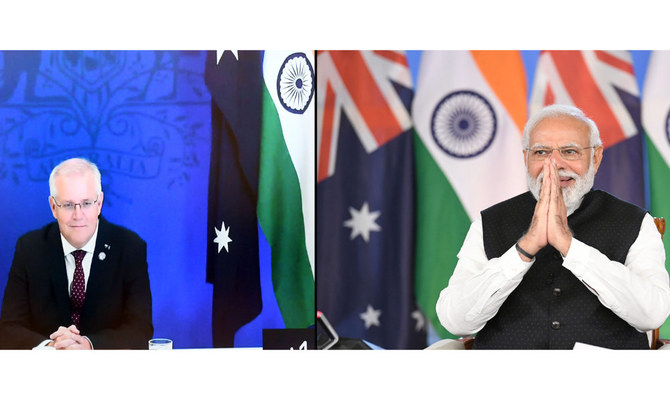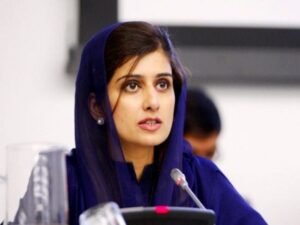There’s a panda in the room’: Why Australia signed historic free trade pact with India

There’s a panda in the room’: Why Australia signed historic free trade pact with India
New Delhi: Increasing strategic and economic tensions with China, and the upcoming elections in May, finally made Australia enter the dotted line to approve the free trade agreement with India who had been in manufacture for more than a decade, a step Canberra believed more Continue will increase the ‘Comprehensive Strategic Partnership’ with New Delhi.
“There is a panda in the room … India has faced border tensions, Australia has faced economic coercion, we face new challenges in the Pacific. These problems will not disappear overnight,” said the Australian High Commissioner to India Barry O’Farrell, without Mention China, at an event organized by the Australia India Institute in Delhi Monday.
This, according to the envoy, it is why it makes strategic sense for Canberra and New Delhi to sign economic cooperation Australia-India and trade agreements (AI Ecta), a free trade agreement previously known as a comprehensive economic cooperation agreement (CECA).
Negotiations for Ecta began in 2011, and in 11 years, talks have experienced several ups and downs, and skipped several deadlines. Phase I of the ECTA was signed on April 2, even when Australia continued to face trading tensions with its largest trading partners – China.
“Our geography puts us right in the middle of the world’s strategic gravity center. And because the international system becomes more multi-polar, the resilience of the region will be tested. The current events in Europe function to remind us of the in-depth strategic challenges and disorders facing the world , “O’Farrell said.
“Commands that support peace and prosperity for decades are challenged. And there is no doubt the implications of the invasion of Ukraine will echo in our region for some time,” he added.
The envoy said that Australia and India have received “shared responsibility to ensure peaceful, inclusive and tough indo-Pacific. A region where the right of all countries is respected, regardless of its size. Where disputes are managed peacefully, legally and without coercion . Where the open market facilitates the flow of free trade, greater investment, and stronger bonds “.
Instructions in China, he added that it was because “panda” that Australia, India, Japan and the US gathered to revive a quadratic security dialogue, known as Quad.
O’Farrell also said that while Australia “understood” why India had taken a neutral in the Russian-Ukrainian war, however it would be implications in the Indo-Pacific. He also referred to the policy of the first Prime Minister in India Jawaharlal Nehru about non-alignment.
“Australia understands India’s position … an Indian PM 65 years ago describing a reasonable doctrine where he said India was not in the business of punishment, but in the business creating conditions where the solution could be found,” he said.
According to diplomatic sources, Australia also wanted to sign an agreement with India earlier because she was heading for general elections in May. It is also why Australia provides and “accommodating” some demanding India have made, especially in trading services, or in other words, professional movement.








